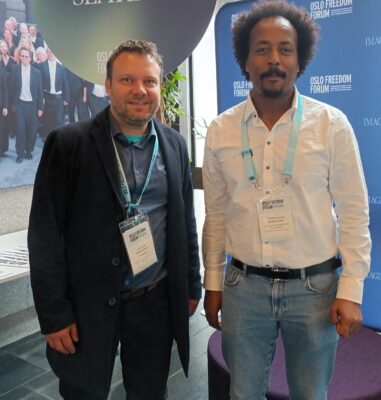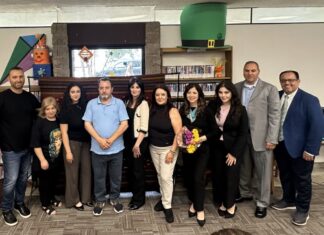WATERTOWN, Mass. — On March 2, friends, family members and community members gathered at St. James Armenian Church to pay their final respects to Ara Kalaydjian, former editor of the Armenian Mirror-Spectator, who had passed away on February 26, after a long illness.
Very Rev. Krikor Maksoudian, Rev. Arakel Aljalian, Rev. Dajad Davidian, Very Rev. Raphael Andonian, Avak Deacon Armen Dilan and Rev. Karekin Bedourian officiated at the service. Eulogies were delivered by Maksoudian and Ara Kalaydjian’s younger brother, Arek Kalaydjian.
After the funeral service, the internment took place in Grove Hill Cemetery in Waltham. A hokejash was served in the Tarvezian Hall of St. James Church.
The younger Kalaydjian’s touching eulogy, remembering the late editor as a brother as well as an intellectual powerhouse in the community, is printed below: “A public servant or hasaragagan kordzich in Armenian is someone who selflessly devotes himself to the good of his community and his nation. He is not driven by the pursuit of fame, money, or self-promotion. My brother Ara was for most of his life the consummate public servant of his people and the Armenian Cause. His dedication and focus on preserving the Armenian literary heritage were unwavering. I’m sure that he could have chosen a different and successful career in another field. Yet influences at home and growing up in Jerusalem had determined his path. I believe he had absorbed the often-repeated message of the writer and teacher Teotik, who in the years following the Genocide would gather together the Armenian orphans on the island of Corfu and try to instill the importance of education, remembering their Armenian identity, staying strong and passing on the torch. As if to seal the pact they would end each session by confirming their bond as Armenian Christians, reciting together the Hayr Mer (Lord’s Prayer). This story was often told in our family, as my father had been one of those young orphans
privileged to be addressed by Teotik. Ara was born and grew up in Jerusalem a little over two decades after the horrors of the Genocide. He was schooled at the local St. Tarkmanchatz, then at the Mekhitarists’ school in Lebanon and subsequently graduated from the Melkonian Educational Institution in Cyprus. The mission of all these institutions was very important: clergy and laity alike had the monumental task to educate these children, the first generation born after the Genocide. The Armenian nation was shaken to its core, its future uncertain. The students had to be a given a sense of normalcy, strength, and the will to persevere.








